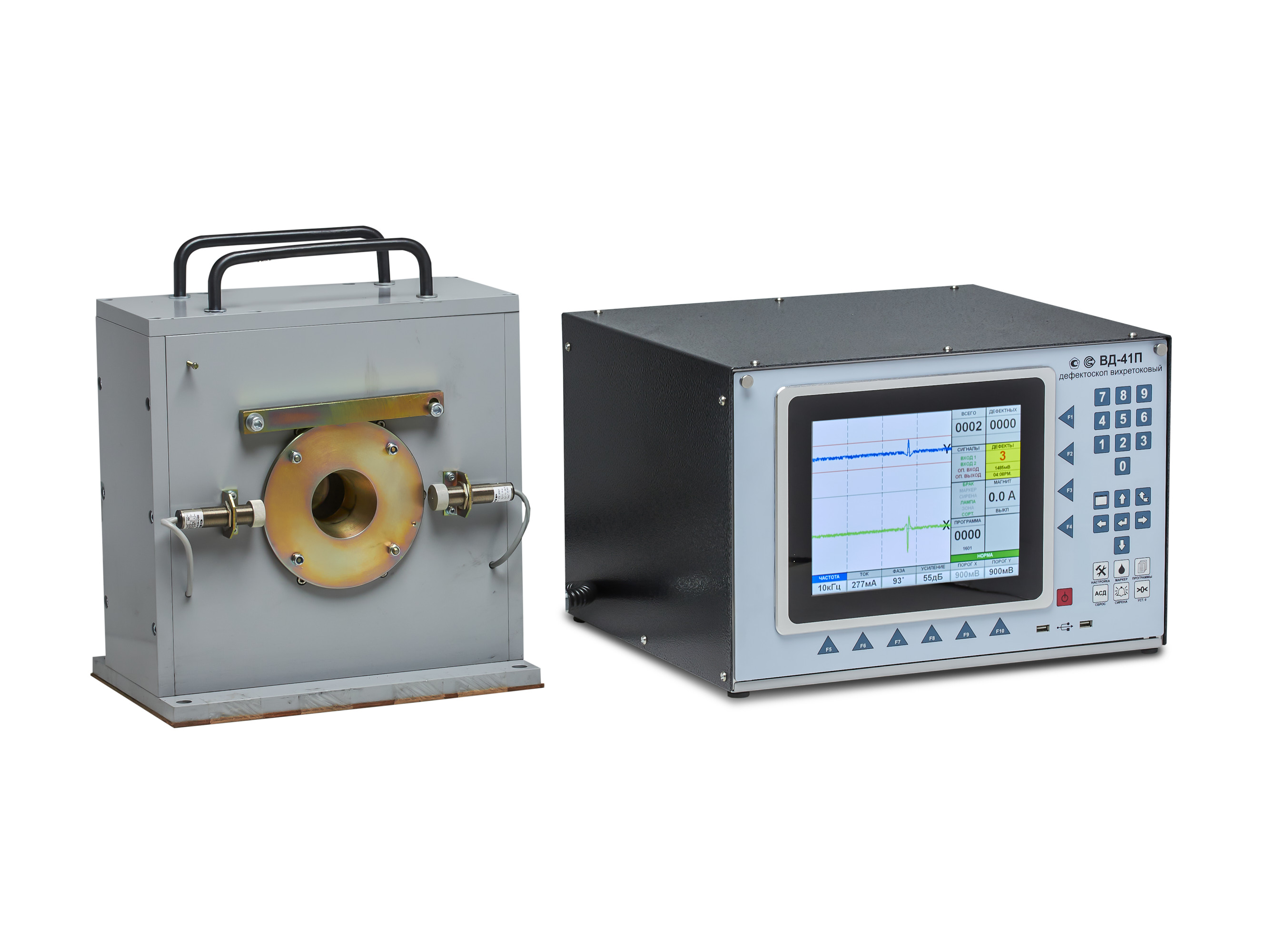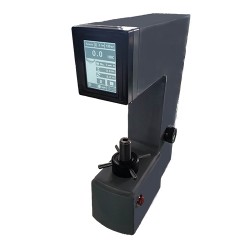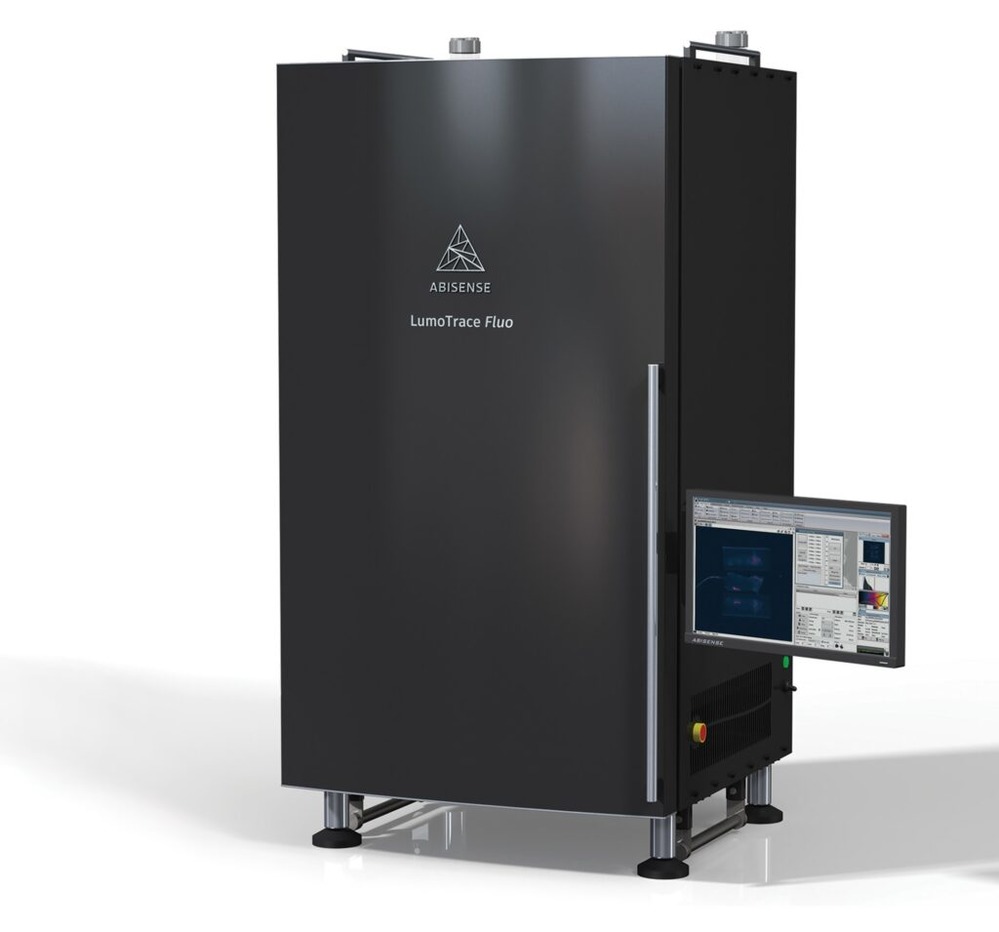Catalog
Search
211 products
View:
- Selected: 1Areas of use
- Selected: 0Item names
- Selected: 0Manufacturer
- Selected: 0Made in
- Selected: 0Additional
View:
211 products

Remote-controlled atomizer
A remote-controlled atomizer of powder samples with automatic change of revolver-type samples with arc excitation of the spectrum. It consists of an automatic tripod "Carousel" for arc spectral analysis and a spectroanalytic generator "Ball Lightning"– 40A fully compatible with the expert software system "ATOM" and the MAES analyzer.
VMK OPTOELEKTRONIKA
Novosibirsk
Produced in: Novosibirsk

Explosion-proof vacuum electric furnace START-25
Vacuum resistance furnaces are necessary for heating products before pressure treatment, for sintering, degassing, quenching, annealing, soldering and chemical-technological processes. Such furnaces among all the variety of thermal equipment are considered the most environmentally friendly – heat treatment is carried out at t up to +2500 ° C in a purified vacuum. Under certain conditions, vacuum furnaces are used to work with neutral gases.
The outer part of the furnace is made of stainless steel and is cooled by liquid. The inner part of the working chamber, where the heat treatment of materials is carried out, is made of an alloy of molybdenum and tungsten. The components are characterized by a low inertia force, reduced gas separation. The settings are available on the control panel, where the instruments, automatic and manual control switches are located.
At every enterprise of the electronic industry, nuclear power, an explosion-proof vacuum resistance furnace is needed. The same applies to areas where various products undergo heat treatment at the stage of production and preparation for use.
Tula-Term
Tula
Produced in: Tula

Furnace for heating in a protective environment CHO (3)-6/11
from
1 420 750 ₽
Designation
SNO(H)-6/11
Power, kW, no more
than 8
Supply network voltage, V
380
Frequency, Hz
50
Tula-Term
Tula
Produced in: Tula

VD-41P Eddy Current Flaw Detector
Scope of application
The VD-41P eddy current flaw detector is designed to work as part of automated quality control lines at pipe-rolling and metal-rolling enterprises with continuous output control of products together with other auxiliary devices: a paint meter, a path sensor, an object presence sensor, an automatic sorter, a demagnetizer.
The device can also be used for input control at machine-building enterprises of the automotive, aviation, oil and gas, and agricultural industries.
Technical specifications:
Control frequencies: 1.0 – 100 kHz.
Control speed (line speed): 0.5 - 5 m/s.
The high-frequency filter is automatically adjustable depending on the speed.
Signal phase adjustment: 0 - 359° .
Converter current adjustment: 50 – 500mA.
Automatic monitoring of the operability of the measuring converter.
Data processing:
- Software adjustable filter.
- Signal evaluation using signal masks:
- circular mask,
- sector masks.
- Sorting by control results.
Display: 10.2” (26 cm) touch LCD (800x600).
Operating system used: WINDOWS® 7.
Dialog language: Russian, other languages (optional).
Applicable eddy current converters: overhead type, through type, sector type.
Interfaces:
- Connector for the converter unit.
- External automation control connector.
- 4 outputs with delay adjustment - "dry contact".
- 2 external information inputs.
- VGA interface for connecting an external monitor.
- USB 2.0.
- Network: Ethernet (TCP/IP).
- Other interfaces on special order.
Power supply: 220 V, 50 Hz.
Operating temperature range: 0 to +40°C.
Type of climatic performance - UHL 4 (i.e. for moderate and cold climate).
Enclosure protection degree: IP 53.
Dimensions, w/h/d: 471 x 285 x 460 mm / can be built in a 19” rack/cabinet.
Weight: approx. 20 kg.
RII MNPO SPEKTR
Moscow
Produced in: Moscow

Chamber electric resistance furnace CHO-12.18.12
from
550 000 ₽
Designation: SNO-12.18.12
Temperature: 1200
Opendoors: electromechanical
Camera size (w.G.V.):1200x1800x1200
Regulation zones: 1
Tula-Term
Tula
Produced in: Tula

Express analyzer RaPort
1 supp.
Express portable Raman analyzer "Inspectr" RaPort® provides the quality of laboratory molecular analysis and accurate identification of material with maximum mobility. A completely portable device, lightweight, equipped with a built-in battery and wireless data transmission, it easily obtains spectra of prohibited materials and their compounds.
Use RaPort with your Android or Windows tablet/smartphone and enjoy the ease of analysis with EnSpectr mobile software. Create your own database, work with spectra and manage measurement parameters in one convenient interface. Identify parts of a substance in concentrations up to 1% thanks to a unique recognition algorithm and measurement quality.
Use RaPort with your Android or Windows tablet/smartphone and enjoy the ease of analysis with EnSpectr mobile software. Create your own database, work with spectra and manage measurement parameters in one convenient interface. Identify parts of a substance in concentrations up to 1% thanks to a unique recognition algorithm and measurement quality.
Spektr-M
Chernogolovka
Produced in: Chernogolovka, Moscow region

Chamber furnace with sliding hearth SNOT-10.10.10/12
from
680 000 ₽
Designation: SNOT-10.10.10/12
Temperature: 1200
Door opening: Electromechanical
Hearth drive: electromechanical
Camera Size (WXDXH) 1000x1000x1000
Regulation zones: 1
Tula-Term
Tula
Produced in: Tula

Electric resistance chamber vacuum furnace SNVS-1.5.2.0/10SHM10
The electric furnace SNVS-1,5.2,0/10SHM10 is designed for heat treatment in vacuum, according to the technological process. The execution Of The Electric Furnace is mine. The type of cage is monoblock or composite. The loading direction is vertical. The loading method is by universal shop lifting mechanisms.
Tula-Term
Tula
Produced in: Tula

Steam generator of analytical samples of metal samples "Aspect"
During operation, the steam generator of metal samples "Aspect" provides control of all devices of the atomic emission spectral analysis complex - the MAES analyzer, the Ball Lightning generator, the inclusion of external devices;
A spark unipolar discharge is excited between a tungsten counterelectrode and the surface of the test samples - ingots of precious metals or other metal samples;
The intensity of erosion of the sample surface is regulated by changing the repetition frequency and power of spark pulses generated by a computer-controlled semiconductor spark generator;
The stability and quality of the frisking is monitored using a built-in spectrometer via optical fiber;
An adjustable flow of high-purity argon passes through the spark discharge zone in a sealed discharge chamber, picks up sample particles obtained by spark erosion of the surface and transfers them in the form of an aerosol to the area of the mixer/sprayer of the inductively coupled plasma torch of the optical emission spectrometer.;
The flow of high-purity argon is supplied, controlled and regulated by a microprocessor-controlled mass flow controller in the range from 0.5 to 3 l/min. Feed stability 0.01 l/min.
VMK OPTOELEKTRONIKA
Novosibirsk
Produced in: Novosibirsk

Laboratory shaft furnace SSHOL-3/11-KP
Designation
SSHOL-3/11-KP
Temperature, oC
1100
Supply voltage,
220 V
Power, kW
5
The amount of working space, l
2.2
Tula-Term
Tula
Produced in: Tula

Metolab 102 Rockwell Hardness Tester
METOLAB 102 is a stationary hardness tester, a modification of the METOLAB 100 and METOLAB 101 devices with extended functional characteristics. The main difference of this model is a fully automated measurement process. The METOLAB 102 hardness tester allows you to control the parameters of various materials and products using the Rockwell method, HRA, HRB, HRC scales.
It is also worth mentioning the opportunity to print promptly measurement results on the built-in printer, the functional opportunity to convert the results into the Vickers, Brinell and Super-Rockwell scales.
Structurally, the METOLAB 102 hardness tester is a stationary device consisting of a load application mechanism and the measuring unit itself. The principle of operation of the device is based on the indentation of a diamond cone or steel ball tip into the material under study, followed by measurement of the resulting print. Due to its ease of operation, the stationary METOLAB 100 hardness tester can find its application in a wide variety of industries and production, as well as in educational institutions of various levels in the training of specialists.
The stationary METOLAB 102 Rockwell hardness tester is included in the State Register of Measuring Instruments of Russia (GRSI) and comes with a certificate of primary verification (on request). The number in the GRSI is 65128-16.
Distinctive features of the stationary METOLAB 102 Rockwell hardness tester:
Simplicity and convenience in operation and maintenance;
Large and bright LCD screen, fully Russian-language menu, output of all necessary information;
Wide range of measured values;
Ability to convert results to Brinell, Vickers, Super-Rockwell scales;
Built-in printer for quick printing of measurement results;
High degree of reliability of the hardness tester.
Basic delivery package:
Stationary METOLAB 102 hardness tester;
Indenter with a ball (1.5875 mm) - 1 pc.;
Conical diamond indenter (120°) - 1 pc.;
Flat table SP1 (60 mm);
V-shaped prismatic table SRP1 (40 mm);
Rockwell hardness measures - 1 set;
User Manual.
Metolab
Moscow
Produced in: Moscow

Furnace for heating in a protective environment CHO (3)-6/12.5
Designation
SNO(H)-6/12.5
Power, kW, no more
than 8
Supply network voltage, V
380
Frequency, Hz
50
Tula-Term
Tula
Produced in: Tula
